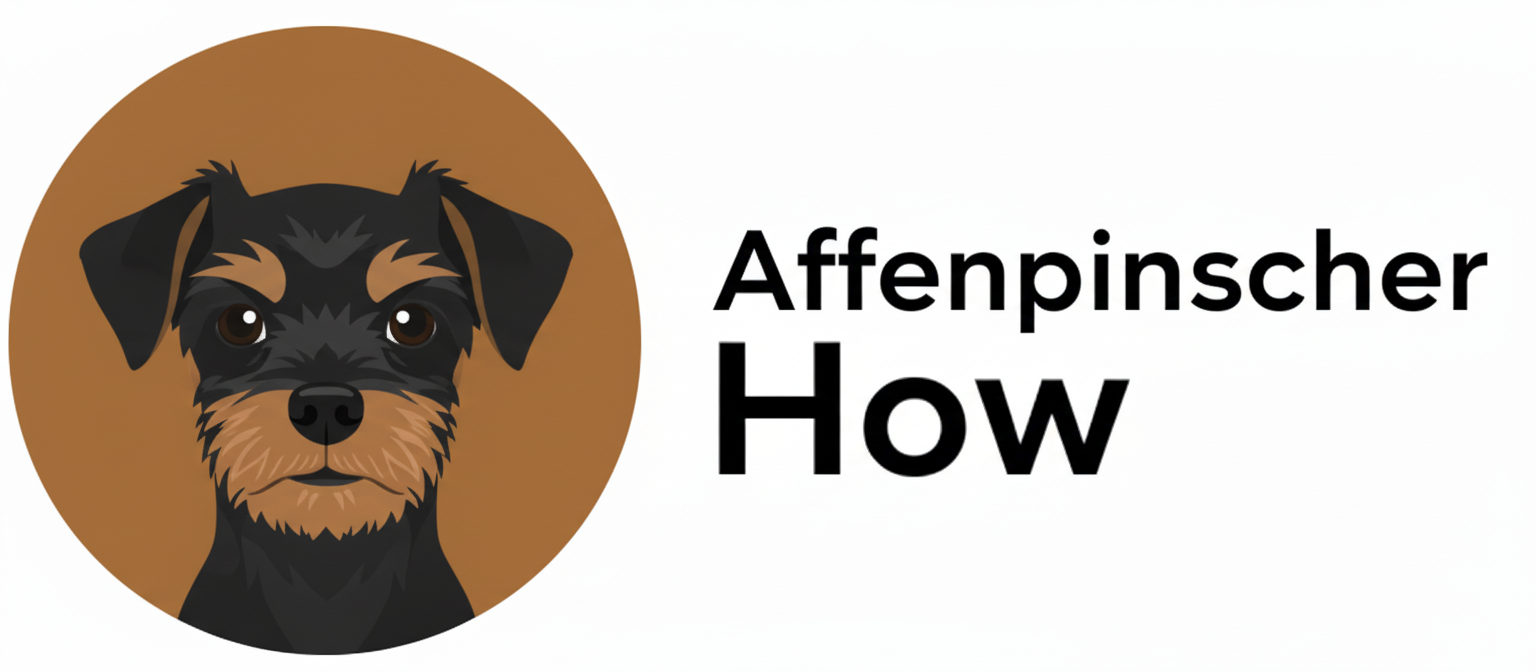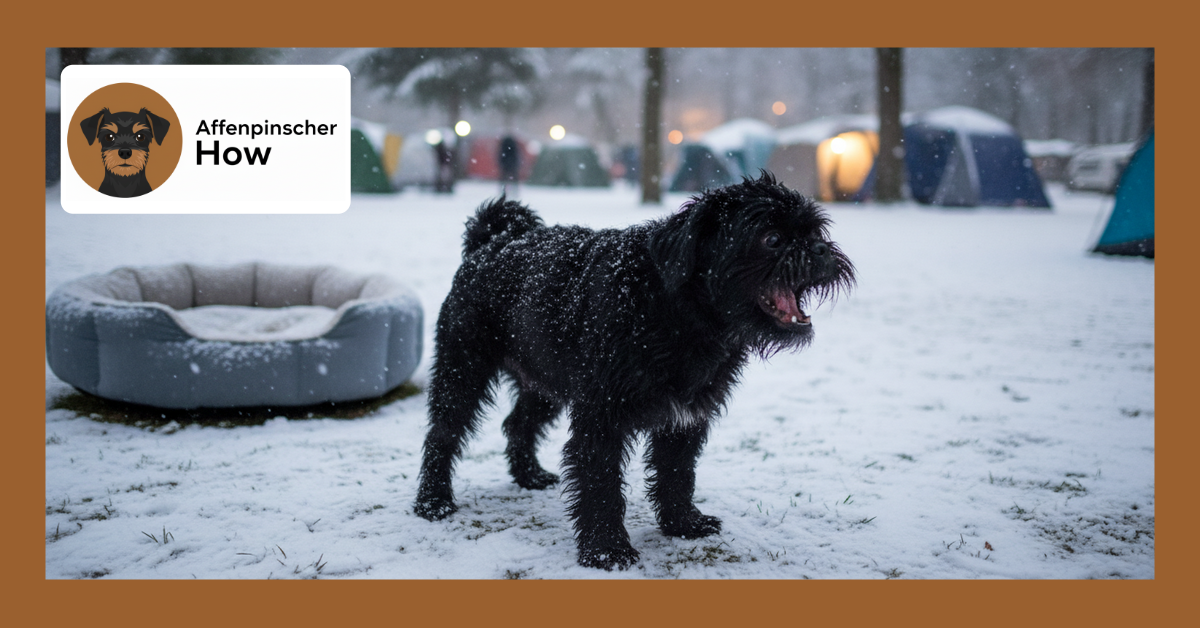Does your Affenpinscher’s growling leave you wondering if you should be concerned? You’re not alone – nearly 35% of reported growling cases in small breed dogs are attributed to anxiety or discomfort, according to recent PetMD data.
Why is your Affenpinscher growling? Affenpinschers growl for multiple reasons including play, communication, resource guarding, pain, fear, or territorial instincts. Understanding the context and body language accompanying the growl is essential for determining whether it signals enjoyment, warning, or distress.
This distinctive behavior in your monkey-faced companion isn’t always cause for alarm. Modern veterinary behaviorists emphasize that growling serves as a crucial communication tool, and recognizing the difference between playful vocalizations and warning signals can strengthen your bond with your pet. The American Kennel Club confirms that understanding growling context prevents escalation and builds trust between dogs and their owners.
Understanding Your Affenpinscher’s Communication Style
Affenpinschers possess a unique personality that influences their vocal expressions. Originally bred as ratters and guardians, these small dogs retain strong territorial instincts and assertive dispositions that manifest through various growling behaviors.
Their compact size doesn’t diminish their bold nature. When your Affenpinscher growls, they’re using one of their primary communication methods to express emotions ranging from pure joy to serious warnings. If excessive vocalization becomes problematic, our comprehensive guide on Affenpinscher barking solutions offers proven strategies for managing vocal behaviors.
The key lies in observing the complete picture – not just the sound itself, but the accompanying body language, environmental context, and timing of the behavior.
7 Reasons Why Your Affenpinscher is Growling
1. Playful Expression and Excitement
Play growling represents one of the most common and harmless reasons for vocalization. During interactive games or when meeting favorite people, Affenpinschers often emit low, rumbling sounds accompanied by relaxed body postures.
Look for these positive indicators: loose, wiggly movements, play bows, and an overall happy demeanor. The growling typically occurs in short bursts rather than sustained, intense vocalizations. For ideas on channeling this playful energy constructively, explore our engaging playtime activities designed specifically for Affenpinschers.
2. Resource Guarding Behavior
Affenpinschers’ guardian heritage makes them prone to protecting valuable items. They may growl when someone approaches their food bowl, favorite toys, or preferred sleeping spots.
This protective instinct isn’t necessarily aggressive but represents their natural inclination to secure resources. The growling often escalates if the perceived threat continues approaching the guarded item.
3. Pain or Physical Discomfort
Sudden onset growling, especially when touched or handled, frequently indicates underlying pain or illness. Affenpinschers may vocalize when experiencing joint discomfort, dental issues, or internal problems.
Pay attention to changes in normal behavior patterns. If your typically friendly dog begins growling during routine interactions, schedule a veterinary examination to rule out medical causes. Dental problems are particularly common in small breeds, making regular Affenpinscher dental care essential for preventing pain-related behavioral changes.
4. Fear and Anxiety Responses
Stressful situations trigger defensive growling in sensitive Affenpinschers. Common anxiety triggers include unfamiliar environments, loud noises, new people, or overwhelming social situations.
Fear-based growling typically accompanies submissive body language: lowered head, tucked tail, backward movement, or hiding behavior. This vocalization serves as a “please back away” signal.
5. Territorial Protection
Your Affenpinscher’s alertness makes them excellent watchdogs, but this vigilance can result in territorial growling. They may vocalize when strangers approach your home, car, or other spaces they consider their domain.
Territorial growling often includes forward-leaning posture, raised hackles, and intense staring at the perceived intruder. This behavior stems from their protective instincts rather than pure aggression.
6. Frustration and Barrier Behaviors
When prevented from reaching desired objects or locations, Affenpinschers may express frustration through growling. Common scenarios include being restrained from greeting other dogs or being unable to access favorite areas.
Frustration growling typically occurs alongside other behaviors like pacing, whining, or attempting to push past barriers. The vocalization usually stops once the source of frustration is removed.
7. Pleasure and Contentment
Some Affenpinschers develop “pleasure growling” habits during enjoyable activities like belly rubs, brushing, or cuddling sessions. This positive vocalization differs significantly from warning growls in tone and context.
Pleasure growls sound softer and more rhythmic, often accompanied by relaxed facial expressions and continued engagement in the enjoyable activity.
Reading Your Affenpinscher’s Body Language
Understanding growling requires examining your dog’s complete communication package. Body language provides crucial context that determines whether growling signals positive or negative emotions.
| Positive Growling Signs | Warning Growling Signs |
|---|---|
| Relaxed facial muscles | Tense, wrinkled muzzle |
| Loose, wiggly body | Stiff, rigid posture |
| Soft eyes | Hard stare or whale eye |
| Play bow position | Forward-leaning stance |
| Continued engagement | Backing away or freezing |
Vocal Tone Differences
Pay attention to the growl’s pitch, duration, and intensity. Playful growls tend to be higher-pitched and shorter, while warning growls sound deeper and more sustained.
The volume also matters – pleasure growls often remain quiet and controlled, whereas defensive growling typically increases in volume as stress levels rise.
How to Respond When Your Affenpinscher Growls
Your response to growling significantly impacts your dog’s future behavior and your relationship quality. Modern training approaches emphasize understanding over punishment.
Immediate Response Steps
- Stop and assess the situation – Don’t immediately react or move closer
- Observe body language – Look for signs of stress, pain, or playfulness
- Identify triggers – Determine what prompted the growling behavior
- Respond appropriately – Give space if it’s a warning, continue if it’s playful
- Monitor patterns – Track when and why growling occurs
What NOT to Do
Never punish or suppress growling behavior. Dr. Lisa Radosta, a board-certified veterinary behaviorist, warns that eliminating growling removes your dog’s warning system, potentially leading to unprovoked bites.
Avoid these common mistakes:
- Yelling or scolding during growling episodes
- Forcing interaction when your dog shows warning signs
- Ignoring persistent changes in growling patterns
- Using dominance-based training methods
Training and Management Solutions
Addressing problematic growling requires patience, consistency, and positive reinforcement techniques. Focus on changing your Affenpinscher’s emotional response to triggers rather than suppressing the vocal expression.
Counterconditioning Techniques
For resource guarding or fear-based growling, implement gradual desensitization programs. Start by creating positive associations with previously problematic situations.
Work with triggers at a distance where your dog remains calm, rewarding relaxed behavior with high-value treats. Gradually decrease distance as your Affenpinscher’s comfort level improves.
Professional Support
Consider consulting certified dog trainers or veterinary behaviorists for persistent growling issues. Professional guidance ensures safe, effective modification of concerning behaviors while preserving your dog’s natural communication abilities.
When to Seek Veterinary Care
Schedule veterinary appointments if growling behaviors change suddenly or appear alongside other concerning symptoms. Medical conditions often manifest through altered vocalizations before other obvious signs appear.
Red flags requiring immediate attention include growling when touched in specific areas, changes in appetite or activity levels, or escalating aggressive displays. Early intervention prevents minor issues from developing into serious behavioral problems.
Understanding why your Affenpinscher is growling empowers you to respond appropriately and strengthen your relationship. Remember that growling serves important communication functions, and your goal should be understanding rather than elimination. By recognizing context, reading body language, and responding with patience, you’ll build trust while ensuring everyone’s safety. Focus on addressing underlying causes rather than suppressing natural expressions, and don’t hesitate to seek professional guidance when needed.
Frequently Asked Questions
Is it normal for Affenpinschers to growl more than other breeds?
Yes, Affenpinschers tend to be more vocal than many breeds due to their alert, assertive nature and guardian heritage. Their strong personalities and territorial instincts make growling a common form of communication, especially during play or when protecting resources.
Should I be worried if my Affenpinscher growls during play?
Play growling is completely normal and healthy behavior. If your dog maintains relaxed body language, continues engaging in the activity, and shows no signs of stress or aggression, the growling indicates enjoyment rather than concern.
How can I tell if my Affenpinscher’s growling means they’re in pain?
Pain-related growling typically occurs when touching specific body areas, during movement, or when handling your dog. Look for additional signs like reluctance to move, changes in appetite, or unusual postures. Consult your veterinarian if growling appears suddenly or increases in frequency.
What should I do if my Affenpinscher growls at strangers?
Give your dog space and avoid forcing interactions. Use positive reinforcement to create pleasant associations with new people by rewarding calm behavior around strangers. Gradual socialization and counterconditioning can help reduce fear-based or territorial growling over time.
Can punishment stop my Affenpinscher from growling?
Never punish growling behavior as it removes your dog’s warning system and may lead to unpredictable aggression. Instead, focus on addressing the underlying cause of the growling through positive training methods and environmental management.
How do I know if my Affenpinscher’s growling is getting worse?
Monitor the frequency, intensity, and context of growling episodes. Concerning changes include increased volume, longer duration, more frequent occurrences, or growling in previously comfortable situations. Document patterns and consult a professional trainer or veterinarian if escalation occurs.
At what age do Affenpinschers typically start growling?
Puppies may begin growling as early as 6-8 weeks during play, but more structured communication develops around 3-6 months. Resource guarding and territorial behaviors often emerge during adolescence (6-18 months) as their personalities mature and protective instincts strengthen.

